Husain Haqqani denies role in Imran Khan’s ouster
8 min readPakistan’s former ambassador to the US Husain Haqqani has denied having any role in the ouster of ex-prime minister Imran Khan. He described such an allegation as an “attempt to fool people”.
“The allegation is ridiculous,” he said on Asma Shirazi’s show Faisla Aap Ka on Tuesday. “I conducted research for which I was given a payment of $30,000. If a regime can be changed with this amount, you can also give this amount to bring him back.”
In January, Imran Khan claimed that the-then army chief Qamar Javed Bajwa hired Haqqani in July 2021 to lobby in Washington upon which the ex-envoy launched a “defamation” campaign against him and promoted Bajwa in the US capital.
The documents on the Foreign Agents Registration Act site showed that on July 16, 2021, someone in Pakistan hired a lobbyist (Robert Grenier) on their behalf in Washington. Robert Grenier revealed this in his FARA declaration on July 17, 2021.
According to a Dawn report, PTI officials in the US also claimed that both men — Grenier and Haqqani — were working for a senior figure in the military establishment. This is a claim Haqqani has rejected.
Imran Khan reiterated his accusations against Haqqani in an address to his supporters one year after he was ousted through a vote of no-confidence. “The conspiracy did not start from the US. But it started from here. Husain Haqqani was hired by the government to spread propaganda against me,” he said on April 9. He claimed that the former envoy presented Gen Bajwa as pro-America, leading to the cypher.
When asked about the claim that Iftikhar Durrani contacted him and the firm hired him, Haqqani negated such claims. The firm, with which the PTI government had a contract, had also an agreement with him for some other work, he added.
Haqqani wondered about the impression that receipts of conspiracies were kept. He went on to add that whoever lobbies for anyone or does any payment was done as per law in the US. “So relating it to the conspiracy is nothing less than an attempt to make people fool,” he said.
Relations between Imran and Trump administrations ‘were not good’
The former envoy dispelled the impression that the Imran Khan-led government had good relations with ex-US president Donald Trump. He recalled Trump’s January 01, 2018 tweet, which sparked a war of words between the two countries.
Amidst that, he claimed that some expatriates took US Senator Lindsey Graham to Pakistan. Upon returning to the country, the lawmaker told Trump that the Pakistani premier was “like him and has the same behaviour as him”. He quoted Graham as saying that “If you will talk to him you will get along”. Such a development led to an invitation for Khan to the US.
But Haqqani there was no improvement relating to the policy.
Later, the US administration changed and President Joe Biden did not phone Khan, a development the former envoy said happens rarely.
According to Haqqani, Khan got irked by such a response. At that, he said Durrani might have hired the firm. “I have no knowledge of hiring of that firm. I only know that after many months at the time of the annual filing of that firm, when they say on which they spent money, my name was also there that we had researched with this person. The research was conducted before talking to PTI or after that, the payment was made separately. Firstly, if Bajwa had hired then why did your person let it be hired, secondly how Haqqani got hired.”
He rejected claims that he was hired by the former army chief
“Neither Bajwa hired me nor can anyone. I am a scholar, for the past 22 to 23 years I have proved my credibility through my write-ups and research,” Haqqani said.
Why Biden did not phone Khan?
Haqqani, who was the central character in the Memogate controversy during the PPP tenure, said there were many reasons for bad matters of state between the two countries: Pakistan’s Afghan policy, the US’s perception that Pakistan supports the Taliban and does not support the US in Afghanistan, Pakistan itself coming on FATF list that mentions the lack of step against militant organisations in Pakistan.
The US had warned Pakistan and opposed it on many matters; however, the former always had a hope that cooperation with the latter was much higher than their differences, he added.
There was a stage when the US had a perception that the “differences were much higher than the cooperation”. He was of the view that there were many reasons for it: Better ties of the US with India, and bad assumptions about Pakistan-China ties.
He lamented that now Washington and Islamabad neither have a consensus on Afghanistan and India nor on China.
When Khan came to power, he vowed to improve the economy and bring back the looted money. But the establishment “realised that they have to approach” Saudi Arabia, United Arab Emirates, United States, and China—from where they have been settling the economic matters—when such things were not happening.
He was of the view that in such matters Khan’s nature was a “hurdle”, apparently prompting the establishment to take matters into their own hands. “I opposed it that the army chief should be playing the role of foreign minister. But they thought about what they should do if they need help and Saudi Arabia is not helping because of Khan’s nature or because he had insulted the kingdom’s leaders. So they thought we should convince them and they thought the same with the US. I think more than one lobbies were hired in the US at that time. But I have said I was not part of those lobbies. I don’t know about it.”
The former envoy went on to add that the PTI chief has realised that it was necessary to have better relations with the US. He lamented that politicians keep an anti-America narrative before coming to the power.
When asked about a meeting with former army chief Gen Bajwa, he refused to give details on his meetings with the people. “I would not give details to you on who meets me and who does not. I am out of the country for 11 years and I welcome those from Pakistan. But I did not meet anyone to become part of any plan and change my point of view on any point. I did not meet anyone.”
Haqqani, who has been vocal about his views about institutions’ non-interference in politics, was called a “traitor” during the Memogate scandal.
The alleged memo was delivered in May 2021, alleging that the-then PPP government seeking the Obama administration’s support to rein in the military after the Osama bin Laden raid in Abbottabad. The development led to the resignation of Haqqani as ambassador.
“I will reiterate that those, whose institution illegally blamed me and called me a traitor just on the basis of my narrative, I never did any act on which a treason case started against me. But despite that, if they meet me I would consider it positive for me because this means the blames on me were false and I did not deserve this. I want to say to Khan that he made a role in false claims and he should abstain from such allegations,” he said.
The former envoy called for an end to this narrative of putting allegations of thief, traitor, enemy, dacoit, and infidel to anyone. Politics should be on how the country should be run better, he said, claiming that lobbying in the US would not have a positive outcome.
Impact of ‘cipher’
When asked if the claims about the apparent cipher had any impact on Pakistan, he said that such a query had three parts.
-
When the person who badmouths the US gets popularity then the US gets a message that the opposition against them was getting popularity which was not seen as a positive sign.
-
There was a negative perception of Pakistan after the success of the Taliban in Afghanistan, whether it is right or wrong. The US thinks that if Pakistan had supported them and listened to them they won’t have withdrawn from Kabul in that way so because of this there is a switch-off situation.
-
Everyone thinks that Pakistan is in a chaotic situation, which is not a good situation to talk about. The people think that talks would be held once elections were held. So from one side, Pakistan has lost on every stage.
He was of the view that the fissures in US-Pakistan ties were not new.
How it will get better?
He lamented that the situation was not good for the economy.
Haqqani said the road to improving the economy was not a work of one or two years as it would many years to bring the economy on track. He stressed the need for having an environment of national reconciliation in the country and shared a few points, which are:
-
Sit together.
-
A clear strategy on the economy and matters of national security.
-
Pakistan has to talk to the IMF, whether the incumbent government or the next. Pakistan needs the help of IMF.
-
Pakistan has to change its overall economic strategy to boost exports as the country cannot depend only on remittances.
“We need 10 to 20 years to do that [elevating the nation] in which we are not in a state of war neither internally nor externally and this should be a time of our economic consolidation,” he said.
Role of establishment
Since Haqqani is out of the country for many years, he did not comment on the claims of the establishment that they were apolitical.
“Decisions should be made as per law and the Constitution then there will be much improvement and I will say this to the politicians also as they should also follow them. The spirit of democracy is to respect each other and walk with each other,” he said.
For the latest news, follow us on Twitter @Aaj_Urdu. We are also on Facebook, Instagram and YouTube.






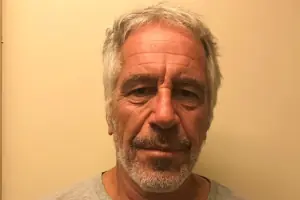
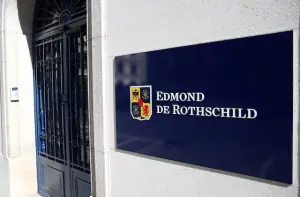

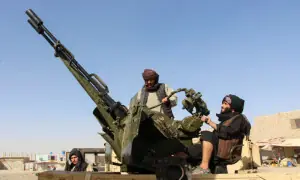
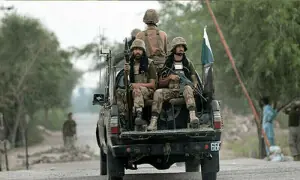


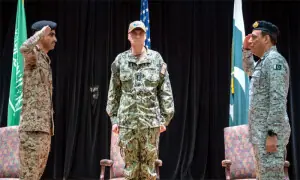
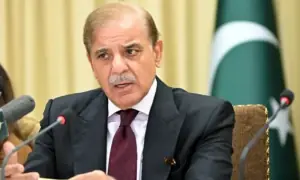
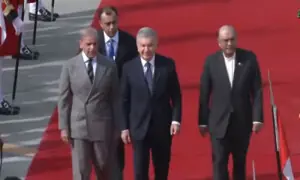
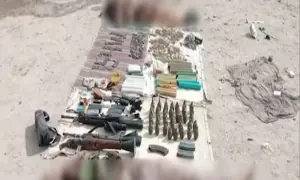
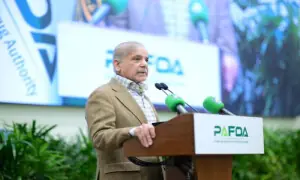

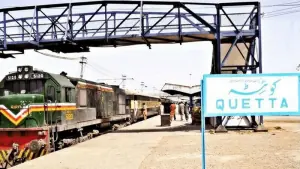

Comments are closed on this story.